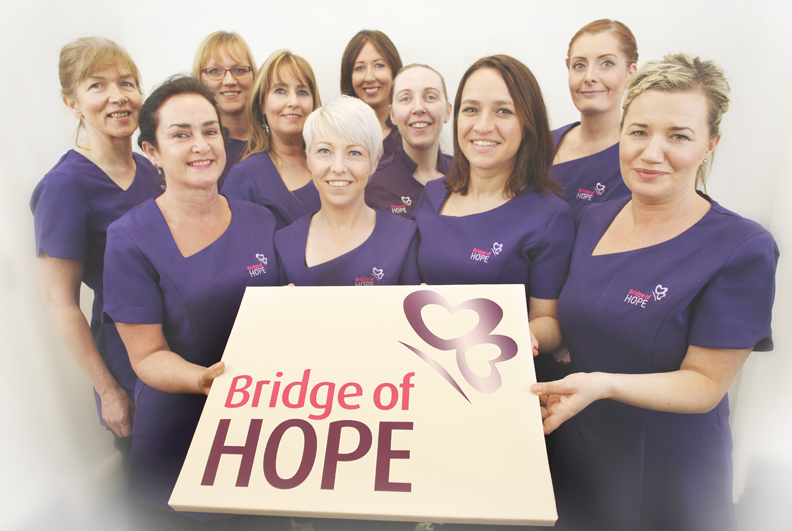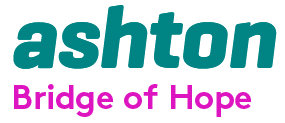

Bridge of Hope is a health and wellbeing service that supports individuals affected by the conflict and those experiencing poor physical and emotional health. It is a project of Ashton’s Health and Wellbeing department and works from two bases in North Belfast – McSweeney Centre close to Carlisle Circus and Alliance Avenue. Our mission is “To empower and promote positive change for victims and survivors through delivery of quality health and wellbeing services.” Support includes:
- Complementary Therapies including massage & reflexology
- Physiotherapy
- Life Coaching
- Counselling and Psychological Services
- Accredited VTCT Training
- Personal Development courses in stress management, resilience and mindfulness
- Conflict legacy programmes
- PEACE IV Health and Wellbeing Caseworker support.
All of these services are designed to help manage and reduce stress, and encourage the development of positive, healthy and resilient lives. They also encourage exploration of the causes and effects of conflict, dealing with the past and social justice issues. Our services are victims-centred and based on the theory that no single approach will suit everyone. All services are monitored and outcomes recorded. We support people through a range of funding streams made possible by the Victims & Survivors Service, Belfast Health & Social Care Trust (BHSCT) and Public Health Agency. We are a Primary Care Talking Therapies Hub provider delivering services across the city of Belfast to meet the needs of individuals who are experiencing common mental health problems.
We are based in North Belfast where 577 conflict-related deaths occurred and thousands of people physically & psychologically injured. A high degree of our work is also delivered in West Belfast where 623 lives were lost (CAIN website data).
Statistically, the highest number of conflict deaths took place in areas of high deprivation. North & West Belfast are highest regionally for deprivation and poor health outcomes. North Belfast death rates to to cancer, suicide and alcohol are historically high in comparison to regional levels. North Belfast also has the highest level of peace walls and conflict continues here. Since 2001 over 25,000 people have accessed our wellbeing services.
Bridge of Hope is actively engaged in researching the needs of victims and survivors of the conflict so that we can better advocate their needs at a strategic level. Together with our partner at the Transitional Justice Institute at Ulster University, we have developed a community-university human rights programme that speaks to people whose lives have been changed by conflict. The Transitional Justice Grassroots Toolkit Programme is globally relevant to areas moving out of conflict and has been translated into Spanish and Arabic. It is endorsed by VSS and ICTJ in New York.
Our core staff team is supplemented by sessional practitioners that are Access NI checked and registered with the bodies including: British Association of Counsellors and Psychologists (BACP), Association of Coaching (AC) and Federation of Holistic Therapists (FHT). We adhere to Keeping Adults and Children Safe policies. Staff and practitioners are Mental Health First Aid qualified.
Values
- Open – We are available to anyone.
- Respect – We respect everyone’s journey
- Together – We’re stronger in partnerships and collaborations
- Responsive – We listen and are accessible.
- Trustworthy – We act with integrity
- Victim-centred – We are empathetic and understanding of the impact of the conflict. This guides our work and informs decisions
- Best Practice – We adhere to best practice at all times.
- Quality – Our services are of the highest standard.
Bridge of Hope operates in line with the General Data Protection Regulations 2018. This means we treat your information with respect and in accordance with the law. If you would like further information on this please click below to read our Privacy Statement.
Bridge of Hope, Ashton Community Trust Privacy Statement July 2018
